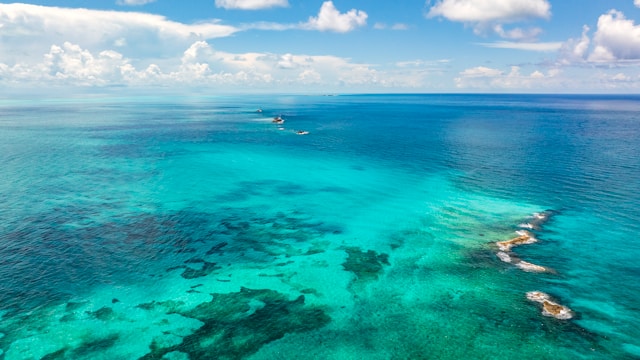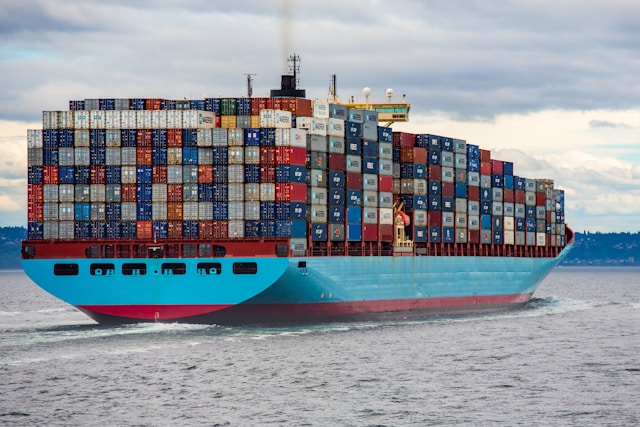Share
What the 2025 U.S. Tariffs Mean for the Caribbean – And How We Can Fight Back

On April 2nd 2025, the world woke up to what is now being called “Liberation Day.” A bold move. A global shake-up. The Trump administration announced sweeping tariffs across the board—10% on all imports into the U.S. overnight.
Some countries got hit even harder: China, Mexico, and even American allies like Europe. The goal? To bring back American manufacturing. To “level the playing field.” But as the dust settles, small island developing states like ours, right here in the Caribbean, are feeling the pressure.
At Leve Global, we’ve seen this before. Trade tensions rise and small economies suffer. And once again, we’re caught in the crossfire of a geopolitical power play that has little to do with us – yet everything to do with our survival.
Let’s break this down. What’s Happening?
The U.S. says it’s protecting its industries. On “Liberation Day,” President Trump rolled out a blanket 10% tariff on all imports. No exceptions. For countries with “imbalanced trade,” the tariffs go higher. Much higher. China, for instance, is now facing a possible 54% tariff on goods entering the U.S. And while he has paused these tariffs for 90 days (as at April 9 2025), we have no clue what he might do next. Will he go ahead as planned? Will he charge even more tariffs? Who knows.
What It Means for The Caribbean
And what about us in the Caribbean? We don’t make the headlines. But we’re right in the line of fire.
Let’s start with Jamaica. The island exports a variety of products to the U.S.—coffee, rum, bauxite, processed food. Suddenly, those goods are 10% more expensive for American buyers. That’s a problem. A big one.
Sales would most likely drop. Exporters will feel the squeeze. And what about small farmers, artisans, entrepreneurs? They’ll be the first to feel the pinch.
Now look at Trinidad and Tobago. A double blow. Not only are exports under pressure. The U.S. also revoked licenses tied to the Dragon Gas Deal. That deal would’ve unlocked natural gas from Venezuela’s offshore reserves—critical for Trinidad’s dwindling LNG supply. Energy exports, primarily oil and natural gas, account for roughly 80% to 85% of Trinidad and Tobago’s total exports.
This isn’t just about gas. This is about jobs; energy revenues; economic stability; and a growing sense that the Caribbean is being punished for doing what’s best for its own survival.
At Leve Global, we believe in sovereignty; in resilience; in smart, strategic moves. So, what now?

How Do We Respond?
Here’s where the Caribbean shows its true strength: Adaptability.
First, let’s not panic. We’ve weathered storms before. We’ve outlasted financial crises, hurricanes, and pandemics. We’ll make it through this too.
But survival isn’t enough. We have to evolve.
- Focus on Invisible Exports
We see huge untapped potential in invisible exports—services like tourism, consultancy, digital content, and the creative industries. From music and film to architecture and online education, these exports don’t face shipping costs or tariffs. They’re scalable, borderless, and deeply Caribbean. Now’s the time to invest in them.
- Diversify Export Markets
Stop relying solely on the U.S. Yes, it’s our biggest trading partner, for tourism and just about everything else. But Africa is rising. Latin America is growing. The EU is stable. Let’s build bridges elsewhere. We must explore new trade agreements, introduce our products to new audiences, and tap into diaspora markets across the globe.
- Intra-Caribbean Trade
Why are we importing so much when many of our neighbours grow, make, and supply what we need? Let’s strengthen regional ties. Improve shipping. Cut red tape. Buy Caribbean!!!
- Empower Small Businesses
Leve Global has always believed in small. Small is powerful. Small is agile. Now’s the time for small businesses to level up. Use digital platforms to access international buyers. Tap into e-commerce. Get visible. Automate. Streamline. Cut costs. Innovate.
- Policy Reform
Governments must act fast. Incentives for exporters. Tax breaks for companies finding new markets. Funding for digital transformation. It’s not optional anymore—it’s essential!
- Energy Independence
Trinidad’s gas situation is a wake-up call. We can’t be held hostage by U.S. sanctions. Let’s look at renewable energy: solar, wind, and even green hydrogen. We must own our energy future.
- Focus on Health and Wellness
Much of the ultra-processed, chemical-rich foods are just plain unhealthy! Let’s grow local; and organic too! Let’s buy more clean foods from Guyana and the eastern Caribbean and if fertilisers got more expensive, focus on locally-grown organic options (e.g. manure)
- Promote Tourism More
Get customers to come from new markets and stay longer and consume our products locally and take back the goodies duty-free. Diversify the markets. Target those countries that have difficulty in travelling to the USA, e.g. China and the Middle East.

What’s Next?
We’re not helpless. We’re not voiceless. But we must be strategic.
Diplomacy matters. CARICOM needs to speak as one. We need to remind the U.S. that we are friends, not foes. We can’t be collateral damage in a fight we didn’t start.
But diplomacy alone won’t save us. Innovation will. Vision will. Unity will.
At Leve Global, we see opportunity in every crisis. These tariffs are a challenge—but also an opportunity and a catalyst. They’re forcing us to RE: rethink, redesign, reposition and reimagine our role in the global economy. There’s no better time to implement the CSME than now to facilitate free movement of people in the region.
We must move from dependence to dominance in niche markets. From exporters of raw goods to value-added producers. From consumers to creators.
Let’s take the rum, coffee, spices, fashion, tech, tourism and energy—and tell our own story. Let’s own our brands. Build our ecosystems. Train our people.
The 2025 tariffs may have started in Washington but their ripple effects are washing up on Caribbean shores.
We can’t control U.S. policy but we can control our response.
Leve Global is here to help businesses, governments, and people navigate this. We bring strategy, insight, and over 30 years of experience helping small economies stand tall. Discover more at www.Leve-global.com
This is our moment. Let’s rise. Let’s adapt. Let’s lead.
The Caribbean isn’t just a collection of small islands. We are strong. We are smart. We are sovereign.
And we will not be left behind.
Discover more at www.Leve-global.com
We would love to hear from you. Engage with us. Leave a comment below.
About the Author:
Kevon Wilson
Senior Analyst
Leve Global

Kevon Wilson, is a premier researcher and strategist. He has more than 16 years’ experience in research and digital marketing.
He is co-author of many of Leve Global’s research publications such as Big Data – Delivering the Big Picture to Drive Competitiveness, Everything You Need to Know About Internet Marketing, and The Top Ten Emerging Markets.
